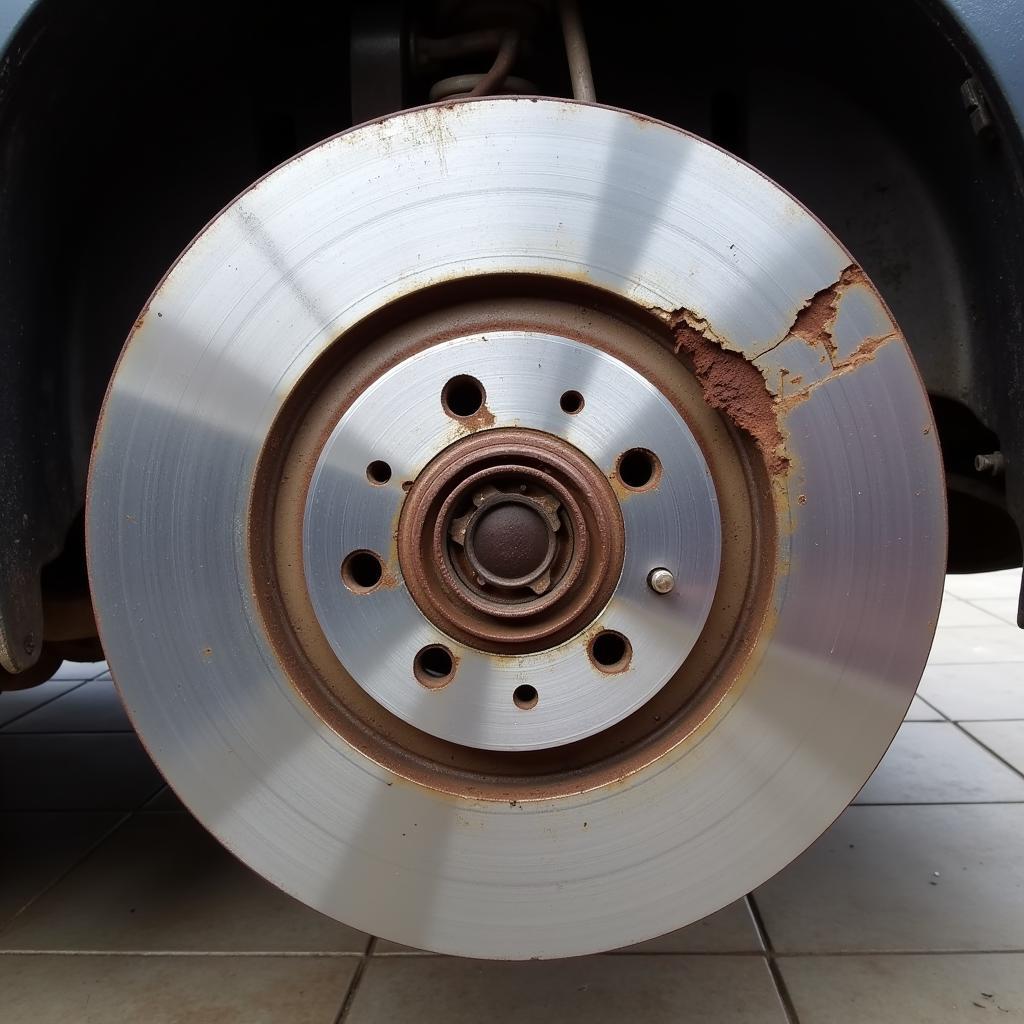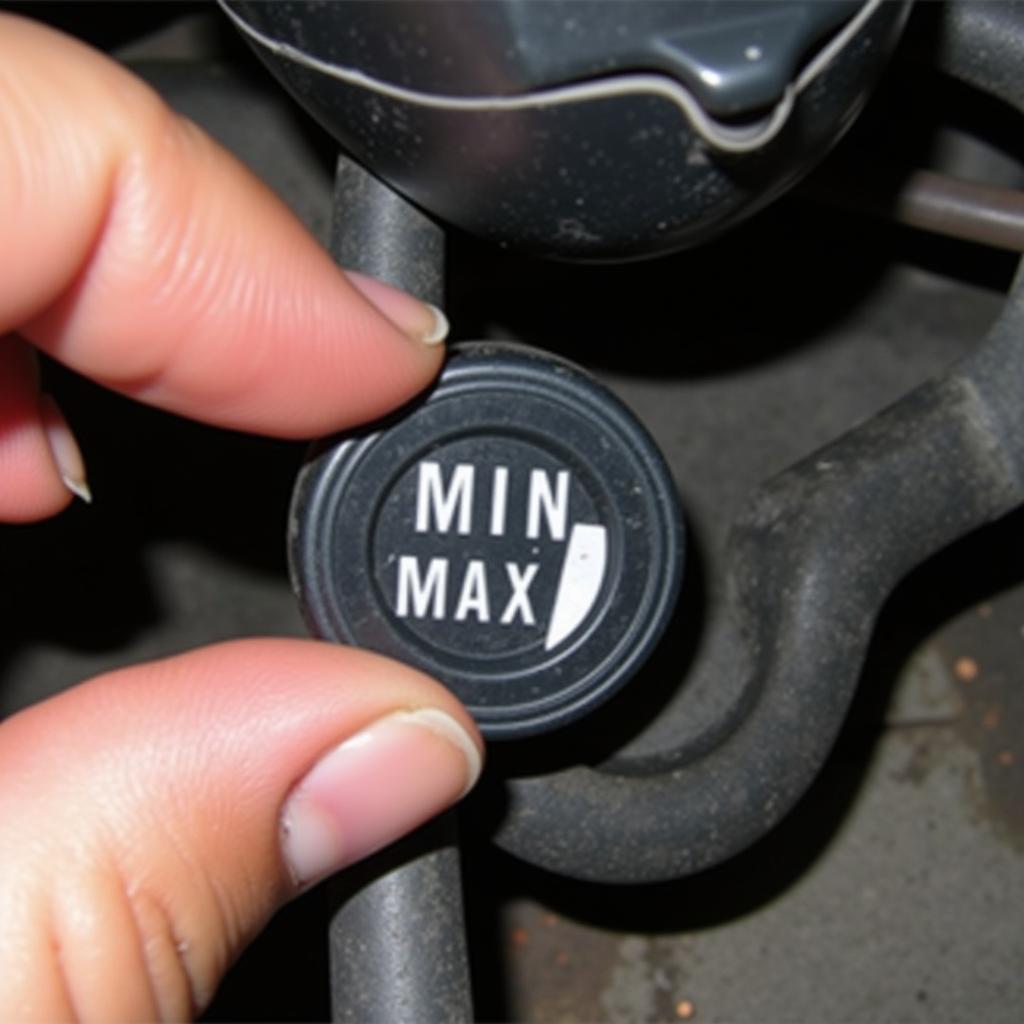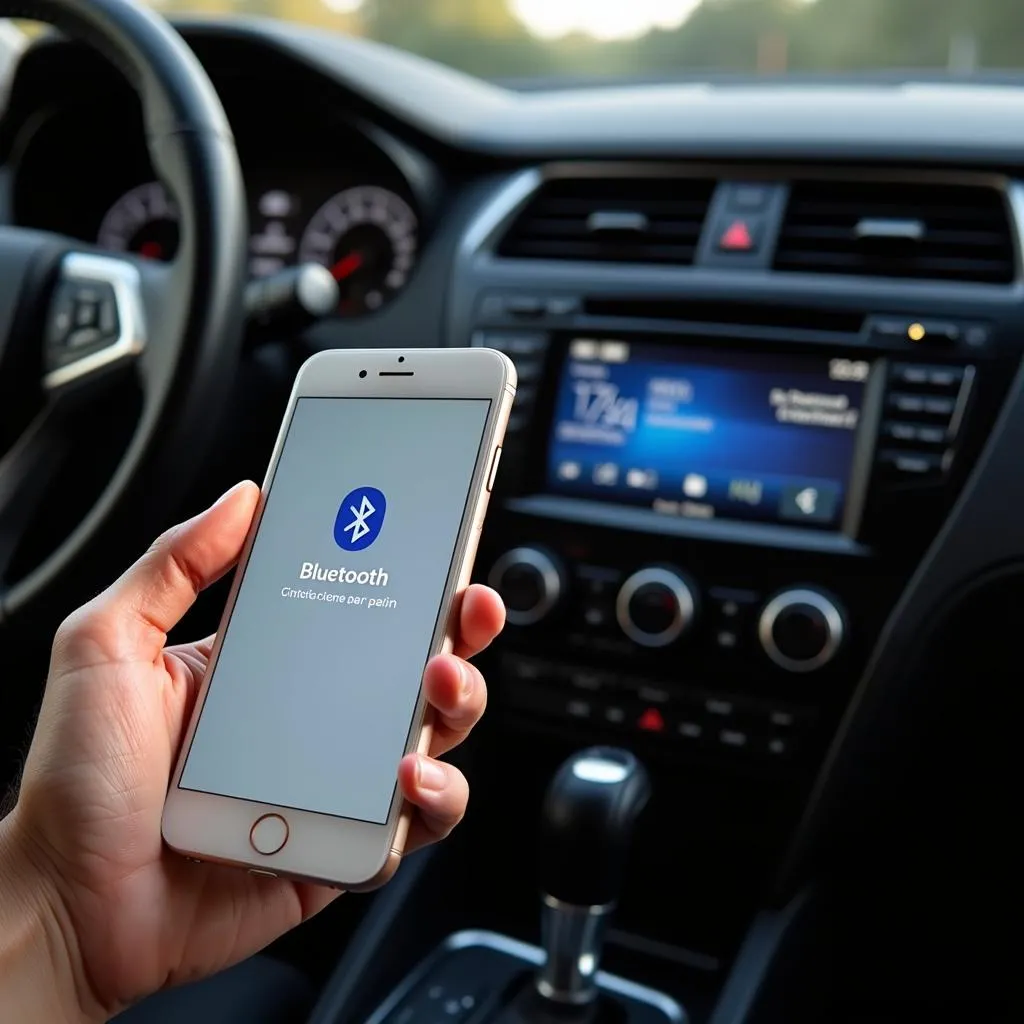Hearing an unexpected sound from your Honda Civic, especially when applying the brakes, can be unsettling. A brake warning sound often indicates an issue requiring attention to ensure your safety and the longevity of your vehicle. While several factors can contribute to this, understanding the common culprits can save you time, money, and potential hazards on the road.
Common Causes of Brake Warning Sounds in Honda Civics
Several components within your Honda Civic’s braking system can produce a warning sound when they encounter problems. Here’s a closer look at some of the most common culprits:
-
Worn Brake Pads: This is the most frequent reason for a brake warning sound. Most Honda Civics are equipped with wear indicators on the brake pads. These indicators are small metal tabs designed to contact the brake rotor and create a high-pitched squealing or screeching noise when the pad material wears thin, signaling it’s time for a replacement.
-
Damaged or Warped Rotors: Brake rotors are the metal discs that the brake pads clamp down on to stop the vehicle. Over time, rotors can become warped or develop grooves due to heat, wear and tear, or improper servicing. A warped rotor can cause vibrations and a grinding noise during braking.
-
Worn Brake Calipers: Brake calipers house the brake pads and pistons. If a caliper seizes due to rust or corrosion, it can cause uneven brake pad wear, dragging, and a grinding or squealing sound.
-
Low Brake Fluid: Brake fluid is essential for transmitting the force from your foot on the brake pedal to the wheels, allowing your car to stop. Low brake fluid levels, often caused by a leak in the system, can lead to a spongy brake pedal feel and a warning light on your dashboard. While not directly causing a sound, it’s often accompanied by a dangerous decrease in braking performance.
-
Faulty ABS System: The Anti-lock Braking System (ABS) prevents wheel lockup during hard braking. If a sensor or component within the ABS malfunctions, it can trigger warning lights on the dashboard and, in some cases, unusual noises during braking.
Diagnosing the Specific Brake Warning Sound in Your Honda Civic
Identifying the specific sound your Honda Civic makes when braking is crucial in determining the underlying issue. Here’s a breakdown:
-
High-pitched squealing or screeching: This is the classic sign of worn brake pads, particularly if the sound occurs only when applying the brakes and intensifies over time.
-
Grinding or scraping: A grinding noise usually indicates metal-to-metal contact, which can be caused by severely worn brake pads, damaged rotors, or a malfunctioning caliper.
-
Clicking or clunking: This type of sound might point to a loose component in the braking system, such as a caliper bolt, brake pad, or a problem with the suspension system.
-
Humming or growling: A humming or growling noise during braking, especially at low speeds, might indicate a problem with the wheel bearings, although it can sometimes be mistaken for a brake issue.
-
Pulsating brake pedal: A pulsating sensation in the brake pedal often accompanies a grinding sound and usually signifies warped brake rotors.
 Damaged brake rotor on a Honda Civic
Damaged brake rotor on a Honda Civic
What to Do When You Hear a Honda Civic Brake Warning Sound
If you notice any unusual sounds coming from your brakes, don’t ignore them. Here are some steps you should take:
-
Assess the Situation: Determine the type of sound, when you hear it, and its intensity. This information will be helpful when consulting with a mechanic.
-
Check Your Brake Fluid: Park your car on a level surface, turn off the engine, and open the hood. Locate the brake fluid reservoir (refer to your owner’s manual if needed) and check the fluid level. If it’s below the “minimum” mark, there might be a leak in the system.
-
Avoid Driving (If Possible): If you suspect a serious issue like severely worn pads, damaged rotors, or a caliper problem, avoid driving the car to prevent further damage and potential safety hazards.
-
Consult a Qualified Mechanic: Schedule an appointment with a trusted mechanic specializing in Honda vehicles. They have the expertise and tools to accurately diagnose and repair your brake issues.
does my civic warn of brakes work
Preventing Future Brake Warning Sounds
Regular maintenance is key to preventing premature wear and tear on your Honda Civic’s brakes. Follow these tips to keep your brakes in top condition:
-
Adhere to the Maintenance Schedule: Consult your owner’s manual for the recommended brake inspection and service intervals. Regular checks allow for early detection and replacement of worn components.
-
Modify Driving Habits: Aggressive driving, such as hard braking and rapid acceleration, can put excessive strain on your brakes, leading to faster wear. Practicing smooth and anticipatory driving can significantly extend the life of your brake pads and rotors.
-
Choose Quality Parts: When it’s time for brake repairs, opt for high-quality brake pads, rotors, and other components from reputable brands. While they might cost slightly more upfront, they generally offer better performance and longevity.
2009 hond civic brakes warning squeel
Conclusion
Addressing a brake warning sound promptly is crucial for your safety and the well-being of your Honda Civic. By understanding the common causes and taking proactive measures, you can prevent costly repairs and enjoy a smooth and secure driving experience. Remember, when it comes to brakes, it’s always best to err on the side of caution and seek professional help when needed.


